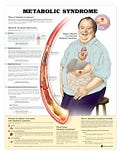Exercise, Insulin Resistance and Longevity
Many people struggle with their weight. Exercise is one of the “therapeutic” options they may choose to control their weight. Body composition, however, is unfortunately a secondary consideration.
FAT & MUSCLE.
People who engage in diets often measure their progress “by the pound”. They state how much weight they have lost instead of the beneficial changes in the proportion of their inert adipose tissue (fat) versus metabolically active lean body mass (muscle protein).
It’s natural to aspire to good health for an endless number of good reasons, but for many people, the demands of work and family live get in the way of establishing it as a top daily priority and habit.
Most of us, however, succumb to various time wasters which, with a little will power combined with expanded knowledge, can inspire a new path to improved health, performance and wellness.
Dr. Peter Attia, a highly regarded expert in the sciences associated with human longevity and life quality, is a good source of information and motivation. I initially learned about Insulin Sensitivity and Metabolic Syndrome from his podcasts and his book, Outlive. Their association with obesity is well established and Peter addresses this topic often. In a recent podcast, for example, he stated:
DIET is the most effective way to lose weight.
EXERCISE is best to build and preserve metabolically-active muscle mass especially during calorie-restricted dieting.
Food.
While most people concerned about their health know that natural, organic foods are superior to the “industrialized” foods that are engineered and strategically stocked on grocery shelves to tempt consumers into habit-forming consumption. Corporate food products are also cheap, convenient and ubiquitous. BING Copilot reports:
The American processed foods sector is substantial, with the U.S. food processing market projected to reach $596.10 billion by 20261. Additionally, the broader U.S. packaged food market was valued at $1.03 trillion in 20212.)
The marketing prowess of proceed foods corporate giants accounts for their success. Concurrently, however, the providers of the truly safe and effective organic foods are reaching greater audiences.
Food quality awareness is growing because diabetes and pre-diabetes continues to list high among the major chronic illnesses in North America.
A counter-intuitive finding shows that pre-diabetes and diabetes affects all ethnic communities, albeit at different rates.
About 14.7% of adults have diabetes, while 38% of adults have prediabetes12. This means that pre-diabetes is more common than diabetes, affecting nearly two in five adults.
Behavioural changes are essential
Responsible weight management reduces the adverse consequences of excess weight to health. Regular exercise is an established requirement, but …
The exercise types most effective to manage weight are poorly understood within too many people within the majority of the population.
Likewise for the seriously concerning adverse conditions that come with obesity.
Recent research can shed some light on this topic. The following are highlights extracted from the three research papers linked below to summarize their findings for this post:
Recent studies (2013-2016) confirm that physical activity (PA) improves insulin sensitivity (SI). Aerobic exercise, or PA of moderate intensity for at least 30 minutes on 3-5 days per week, enhances SI and glycemic (blood sugar levels) control. Acute SI improvements occur 2-72 hours post-exercise, while chronic benefits are seen after 8 weeks. Benefits span all ages and health statuses. Higher intensity exercise may offer greater SI benefits. Both aerobic and resistance exercise (REX) are recommended for optimal outcomes.
… evidence that regular PA reduces the risk of insulin resistance, metabolic syndrome and type 2 diabetes, and SI improves when individuals comply with exercise and/or PA guidelines. Many studies indicate a dose response: higher energy expenditures and higher exercise intensities, including high intensity interval training (HIIT), produce greater benefits on whole-body SI. Both aerobic and resistance exercise can induce improvements in glycemic regulation, with suggestions that exercise regimens including both may be more efficacious than either exercise mode alone. Some studies report exercise-induced benefits to SI that are independent of habitual diet and weight loss, while others indicate an association with fat reduction, hence the debate over the relative importance of PA and weight loss continues. The reduction in intramuscular saturated fatty acids (a manifestation of Metabolic Syndrome) provides a potential link between intramuscular lipid content and SI. Increased skeletal muscle capillarisation provides another independent adaptation through which SI is improved.
Type 2 diabetes mellitus (T2DM) accounts for approximately 90% of diabetes cases globally. Regular physical activity is regarded as one of the key components in T2DM management. Aerobic exercise was traditionally recommended; however, there is a growing body of research examining the independent effect of resistance training (RT) on glycemic control.
These are the highly regarded research papers on the topic of insulin resistance and exercise that are the source of the summaries reported above:
Update on the effects of physical activity on insulin sensitivity - This paper explores the acute impact of exercise intensity on various components of insulin sensitivity and glycaemic control1.
Effects of Amount, Intensity, and Mode of Exercise Training on Insulin Resistance - The STRRIDE trials assess the effects of different exercise interventions on insulin resistance and type 2 diabetes risk2.
Effect of resistance training on HbA1c in adults with type 2 diabetes - This systematic review and meta-analysis examines the effects of resistance training on glycosylated hemoglobin in adults with type 2 diabetes3.
For those of you who are so inclined, I hope you find these papers insightful!
Make time for your health.
A picture is worth a thousand words.
SOURCE: https://i.pinimg.com/originals/d4/aa/9b/d4aa9bf4ab368653ceff9d6b0e0000cf.jpg
Like diet, the exercise domain is a “rabbit hole” into which I recommend to anyone serious about enjoying a long, active and healthy life.
There are no guarantees, of course, but it’s a good bet and well worth your time.



